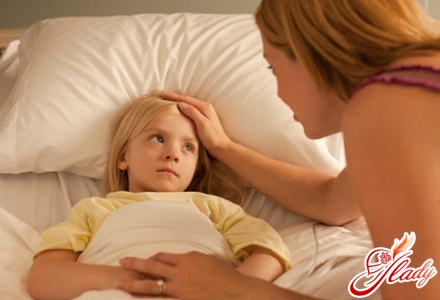
Such a complex mechanism as the menstrualThe cycle should ideally work like clockwork, but failures are quite common. That is why today, a failure of the menstrual cycle is one of the most common gynecological abnormalities. In order to be able to perform the reproductive function, a woman must monitor the regularity of the menstrual cycle and pay attention to any deviations from the norm. If at some point there is a failure in the functioning of the body, there is always a reason for this. The menstrual cycle is based on a system of complex biochemical reactions, it involves the central nervous system (cerebral cortex, subcortical centers), endocrine organs (adrenal glands, thyroid gland), and genitals. All of them are responsible for regulating the cycle to one degree or another. A failure of the menstrual cycle is not considered a separate disease, it is a sign that there is a violation in the functioning of the internal organs.
Norm and deviations
The duration of the cycle is counted fromthe first day of menstruation until the beginning of the next one. The normal duration of the menstrual cycle is from 21 (according to some sources from 26) to 36 days. Menstruation lasts from 3 to 7 days. A 28-day cycle is considered "standard". You should not panic because of a situational delay or shortening of the monthly cycle: in this case, 5-7 days (and according to some sources up to 10 days) are a normal variant. Menstrual cycle disorders can be discussed in the case when menstruation is constantly delayed by more than 10 days or the cycle is shortened by 5-7 days. When failures become systemic, this is an indication for action. An exception is the category of women who have a very long menstrual cycle normally. Such physiological characteristics are genetically determined. As a rule, it turns out that similar cases have already been observed in the family of such women. A small amount of bloody discharge during ovulation (14 days before menstruation) is also not considered a menstrual cycle disorder. The most pronounced form of menstrual cycle disorder is amenorrhea - a complete absence of menstruation for six months or more. During the first three months of taking a hormonal contraceptive or after taking an emergency contraceptive, intermenstrual bloody discharge may appear. If the discharge appears again, you should consult a doctor, as this may be a symptom of a serious illness (for example, uterine fibroids).
Causes of disorders associated with various diseases
Having healthy children is very important for every woman.women. Rare, scanty or, on the contrary, frequent, heavy, irregular menstruation can cause difficulties with conceiving and carrying a pregnancy, so it is very important to pay attention to problems in the body in time. Since certain organs are responsible for regulating the monthly cycle, the cause of failures must be sought in violations of their interaction. Disorders of the cerebral cortex and subcortical centers (pituitary gland, hypothalamus):
- chronic psycho-emotional stress, frequent exorbitant stresses and stressful situations, lack of sleep;
- change of time zones and climatic zones;
- regular wakefulness in the early hours (at this time there is an active allocation of hormones-regulators of the monthly cycle);
- tumor-like formations;
- viral neuroinfections.
Hormonal cycle disruption can occur whendisorders in the functioning of endocrine organs and target tissues, hormones must be secreted and perceived in normal quantities. Disorders of the endocrine system:
- genetic diseases, hormonal failures and pathologies of the ovaries (polycystosis, hypoplasia);
- functional (accumulation of estrogen and progesterone deficiency);
- inflammatory diseases of the uterus and appendages.
Other provoking factors:
- the cause of disorders of the menstrual cycle can be diseases of the thyroid gland, adrenal glands, hypertension, diabetes, obesity, etc .;
- infectious and non-infectious diseases of internal organs and systems;
- one of the most common causes of failures is pelvic infections (it is necessary to undergo examination and identify the pathogen, and carry out anti-inflammatory treatment);
- for a normal cycle in a healthy woman shouldmaintain the necessary body weight in relation to height and age, since a very low mass or rapid loss of it (15-20% of the original weight) can contribute to the development of violations in the menstrual cycle, and in men with anorexia menstruation is absent;
- weakening of immunity has a negative impact onthe general state of the body, can affect the monthly cycle, so you need to eat correctly and balanced, take the necessary amount of vitamins, micro- and macro elements, play sports and minimize the intake of harmful substances;
- uncontrolled use of certain types of medications (especially antidepressants, hormonal drugs, slimming drugs) may adversely affect the monthly cycle;
- Harmful also intoxication of the body, including smoking, taking drugs, alcohol abuse;
- To provoke malfunctions of a monthly cycle the ingress of various toxic substances, including a radiation irradiation can get to an organism.

Age disorders of the menstrual cycle
An irregular cycle is possible in girls during1-1.5 years after the first menstruation, in women after childbirth. It may also indicate the onset of the climacteric period. The first menstruation usually occurs at 12-14 years. A regular monthly cycle should be determined during the formation period, that is, within 1-1.5 years from the moment of the first menstruation. Irregular periods are not considered an abnormality at the age of 45-55 years. During this period, the activity of the ovaries begins to decline, the production of estrogens (the main "female" hormones) begins to decrease. Menstruation gradually becomes irregular and rare, and then disappears altogether, which indicates the onset of menopause (climax). The average age of menopause in women living in countries with a temperate climate is 50 years. At 35-40 years, "early menopause" (ovarian exhaustion syndrome) may occur. The causes of this condition are different, and its development can be influenced by autoimmune disorders, past illnesses, medications, and environmental factors. Most experts are inclined to believe that it is inherited. Various methods of treating this condition have been developed to date.
Indications for a compulsory visit to a doctor
Many people think that their menstrual cycle is irregular.a trifle, but can lead to serious and permanent problems if it is not detected in time and the regular cycle is not restored. For women who are sexually active, a gynecological examination is recommended every six months, even if there are no complaints about health and symptoms of any diseases or disorders. There are many infections that do not manifest themselves in any way, do not cause complaints and do not affect well-being, but are fraught with serious consequences. In other cases, you should contact a specialist if:
First of all, the doctor usually prescribesHormonal profile examination, ultrasound of internal organs, blood test, material collection by a gynecologist to check for infections. Treatment is aimed at eliminating not cycle disorders, but the causes that provoked them. Depending on the diagnosis, medications, physiotherapy, hormone therapy or even surgery may be needed.









